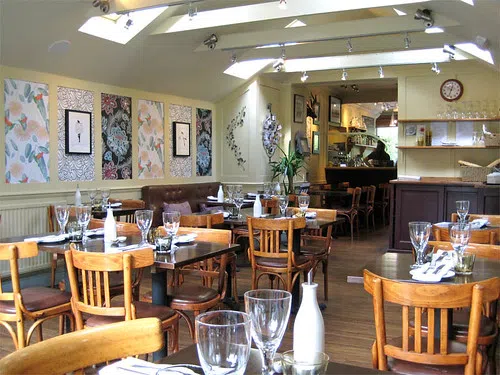A new report shows that restaurants across Canada are struggling with the effects of vaccine passports – and it’s even costing them money.
Restaurants Canada surveyed its members and found more than 60 percent have lost revenue as a result of having to enforce vaccine passport rules.
“Since verification of vaccine status has been implemented, we have seen a drop in traffic and we have received many cancellations for group reservations due to one or more of the attendees not being fully vaccinated,” the Restaurants Canada study says. “Unfortunately, we expect this to adversely affect our holiday season.”
Luc Erjavec, vice president-Atlantic Canada for Restaurants Canada, says the nationwide figures are reflective of the challenges faced by restaurant owners in the Maritimes.
“Well over 60 percent of restaurants say they’ve seen a decline in business as a result of the vaccine passport. Only six percent said they’ve seen an increase in business,” says Erjavec.
“While the passport beats the alternative to closure, there is an impact in terms of sales, there is an impact in terms of costs; 65 percent of operators say they needed to hire extra staff, so it’s just very difficult.”
The extra expense comes from restaurants having to hire extra staff and buy tablets to properly verify passports.
“You can’t expect an employee to use their own phone to do this,” says Erjavec. “We are bearing the brunt of public policy decisions trying to force people to get vaccinated.”
One of the biggest impacts on business has been the fact that there are still many people who are unvaccinated and, therefore, can’t dine in at a restaurant. According to the report, close to 30 percent of people aged 19-39 are still unvaccinated. That’s a demographic that normally oves going to restaurants.
With a sizeable chunk of the population unable to go out, the restaurant industry is relying on vaccinated people making up the difference. This is where Erjavec feels provincial governments can help. He wants officials to get the message out that it’s safe, and smart, to support local restaurants.
“I think there’s really a lot of work to be done to build consumer confidence. But I think government has a role to play to [say it’s safe to go out to restaurants],” says Erjavec.
He says governments can also help financially. Erjavec notes PEI is giving money to businesses that have to enforce vaccine mandate, so they can buy tablets. Erjavec thinks these types of programs should be adopted by other provinces.
“Maybe if it’s not a grant, it’s tax credits for PPE, for all the expensive disinfectants we have to use; for these scanners.”
Despite the financial consequences of the vaccine passport, Erjavec isn’t calling for restaurants to be passport exempt.
“I think we’re probably still too early in the pandemic to exempt us. We understand we’re a little different than a grocery store…people gather for long periods of time (with) close contacts,” he said.
“We would much prefer to keep the vaccine passport in place rather than have the risk of more shutdowns and closures.”
But Erjavec does think it may be time to end mask mandates for restaurants so it’s more comfortable for customers and staff.
“You’re only going to be able to come into a restaurant if you are double-vaxxed, so (eliminating) the masks could be a first step,” he says.
Derek Montague is a reporter with Huddle, an Acadia Broadcasting content partner.







